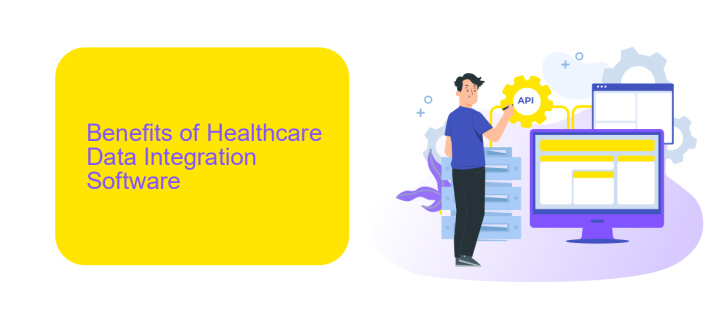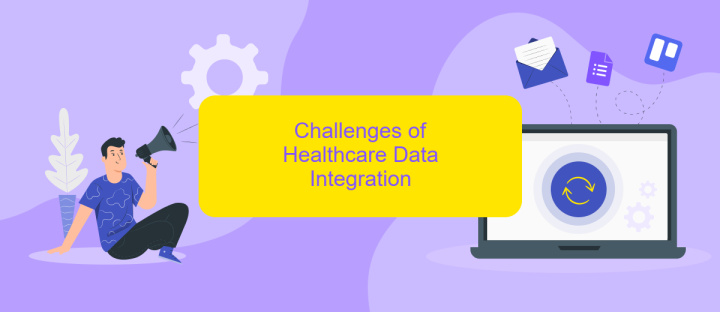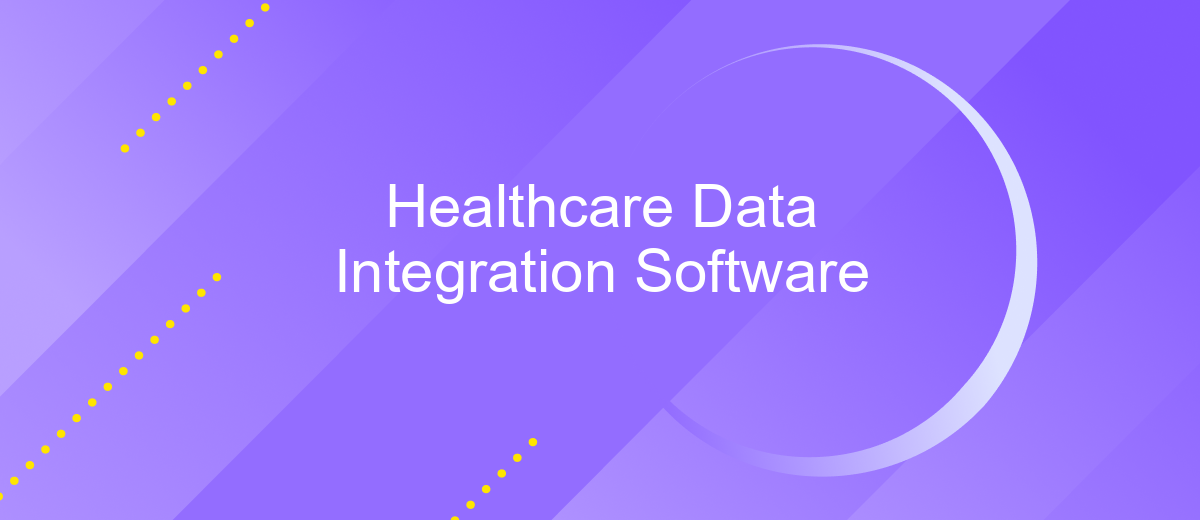Healthcare Data Integration Software
In today's rapidly evolving healthcare landscape, the integration of disparate data sources is crucial for enhancing patient care and operational efficiency. Healthcare Data Integration Software plays a pivotal role in unifying electronic health records, lab results, and other critical medical information. This technology streamlines workflows, reduces errors, and provides healthcare professionals with comprehensive insights for informed decision-making, ultimately improving patient outcomes.
Introduction
Healthcare data integration software plays a crucial role in modernizing healthcare systems by enabling seamless data exchange between various medical applications and platforms. This integration is essential for improving patient care, optimizing operational efficiency, and ensuring compliance with healthcare regulations.
- Enhanced interoperability between different healthcare systems
- Real-time data access for healthcare providers
- Streamlined workflows and reduced administrative burden
- Improved patient outcomes through comprehensive data analysis
One notable solution in this domain is ApiX-Drive, a service that simplifies the integration process by offering pre-built connectors and automated workflows. By leveraging such tools, healthcare organizations can quickly and efficiently link disparate systems, ensuring that critical data is always available when needed. This not only enhances the quality of care but also supports data-driven decision-making in the healthcare sector.
Benefits of Healthcare Data Integration Software

Healthcare data integration software offers numerous benefits, including improved patient care and streamlined operations. By consolidating data from various sources, healthcare providers can gain a comprehensive view of a patient's medical history, leading to more accurate diagnoses and personalized treatment plans. This seamless data flow reduces the risk of errors and ensures that critical information is readily available to medical professionals, enhancing overall patient outcomes.
Additionally, healthcare data integration software can significantly enhance operational efficiency. Tools like ApiX-Drive facilitate the smooth integration of disparate systems, automating data transfer and reducing manual entry. This not only saves time but also minimizes the potential for human error. By leveraging such software, healthcare organizations can optimize resource allocation, improve coordination among departments, and ultimately deliver higher-quality care to their patients.
Challenges of Healthcare Data Integration

Integrating healthcare data from various sources presents numerous challenges that can hinder efficient data management and patient care. The complexity arises from the need to standardize diverse data formats, ensure data privacy, and maintain interoperability across different healthcare systems.
- Data Standardization: Different healthcare providers use varied data formats and terminologies, making it difficult to consolidate information into a unified system.
- Data Privacy and Security: Protecting sensitive patient information while integrating data from multiple sources poses significant security challenges.
- Interoperability: Ensuring that different healthcare systems can communicate and exchange data seamlessly is a critical obstacle.
- Scalability: As the volume of healthcare data grows, systems must be able to scale efficiently without compromising performance.
To address these challenges, services like ApiX-Drive can be invaluable. ApiX-Drive facilitates the integration of various healthcare data sources by automating data transfer processes, ensuring data consistency, and enhancing interoperability. By leveraging such tools, healthcare providers can streamline data integration, improve patient care, and comply with regulatory standards.
Market Overview and Key Players

The healthcare data integration software market is experiencing rapid growth due to the increasing need for seamless data exchange between various healthcare systems. This integration is critical for improving patient care, enhancing operational efficiency, and ensuring compliance with regulatory standards. The adoption of electronic health records (EHRs) and the growing emphasis on value-based care are key drivers of this market.
Several key players dominate the healthcare data integration software landscape, offering robust solutions to meet the diverse needs of healthcare providers. These companies focus on providing secure, scalable, and interoperable platforms that facilitate the smooth exchange of health information across different systems and devices.
- Epic Systems Corporation
- Cerner Corporation
- Allscripts Healthcare Solutions
- Intersystems Corporation
- ApiX-Drive
ApiX-Drive stands out by offering a user-friendly platform that simplifies the integration process for healthcare providers. With its intuitive interface, healthcare organizations can easily connect various applications and automate data workflows, ensuring timely and accurate information exchange. This capability is essential for enhancing patient outcomes and operational efficiency in the healthcare sector.


Future Trends and Innovations
As the healthcare industry continues to evolve, data integration software is set to become increasingly sophisticated. The future trends point towards the adoption of artificial intelligence and machine learning to enhance data accuracy and predictive analytics. These technologies will enable healthcare providers to make more informed decisions, improving patient outcomes and operational efficiency. Additionally, blockchain technology is expected to play a significant role in ensuring data security and integrity, addressing prevalent concerns about data breaches and unauthorized access.
Innovations in API integration services like ApiX-Drive will further streamline the process of connecting disparate healthcare systems. By automating data transfer and synchronization, such platforms will reduce the manual effort required, allowing healthcare professionals to focus more on patient care. Enhanced interoperability through these services will facilitate seamless communication between different healthcare applications, leading to a more cohesive and efficient healthcare ecosystem. As these technologies continue to advance, the potential for improved patient care and operational efficiency in the healthcare sector will only grow.
FAQ
What is Healthcare Data Integration Software?
Why is data integration important in healthcare?
How secure is healthcare data integration?
Can healthcare data integration software be customized to fit specific needs?
What are the steps to implement healthcare data integration?
Apix-Drive is a simple and efficient system connector that will help you automate routine tasks and optimize business processes. You can save time and money, direct these resources to more important purposes. Test ApiX-Drive and make sure that this tool will relieve your employees and after 5 minutes of settings your business will start working faster.

